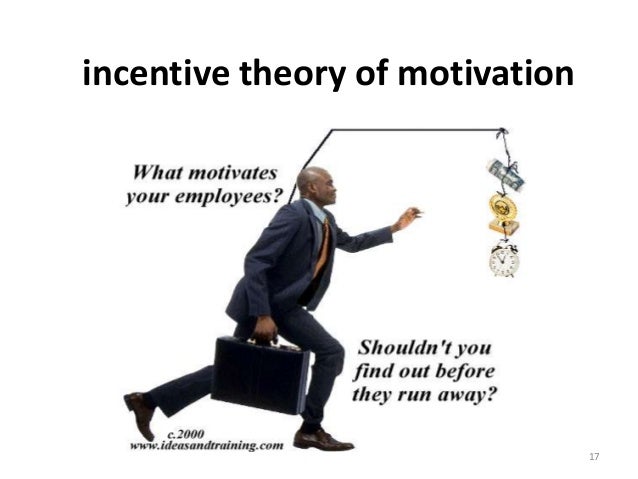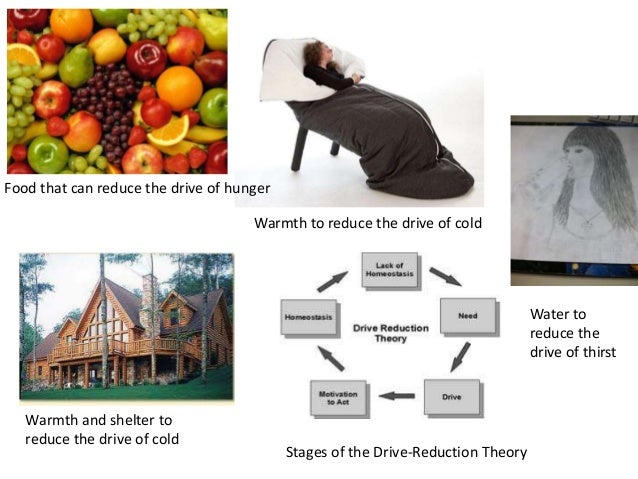Motivation is defined as the process that initiates, guides, and maintains goal-oriented behaviours.
“Of course motivation is not permanent. But then, neither is bathing; but it is something you should do on a regular basis.” ― Zig Ziglar, Raising Positive Kids in a Negative World http://www.goodreads.com/work/quotes/793960
It is not easy to motivate people because every person had different things that motivates them. Money cannot be the motivator for everyone. Some people get motivated by appreciation. But their are some theories that are believed to be motivator agents for every person. These are:
- Incentive Theory of Motivation: The impetus hypothesis proposes that individuals are propelled to do things due to outside prizes. We work for getting pay, pay goes about as helper.
 http://image.slidesharecdn.com/motivation-130304030846-phpapp01/95/motivation-theories-17-638.jpg?cb=1362388197
http://image.slidesharecdn.com/motivation-130304030846-phpapp01/95/motivation-theories-17-638.jpg?cb=1362388197
-
Drive Theory of Motivation: As indicated by the drive hypothesis of inspiration, individuals are persuaded to take certain activities to lessen the inward strain that is created by unmet needs. Something that miracles us on the grounds that we require it however we don't have it prompts activities to have that thing and our needs, needs and cravings inspire us.

-
Humanistic Theory of Motivation: Humanistic hypotheses of inspiration are in view of the thought that individuals additionally have solid cognitive motivations to perform different activities. This is broadly delineated in Abraham Maslow's order of requirements, which exhibits distinctive inspirations at diverse levels. To begin with, individuals are roused to satisfy fundamental natural requirements for nourishment and asylum, and those of security, love, and regard. When the lower level needs have been addressed, the essential spark turns into the requirement for culmination toward oneself, or the craving to satisfy one's individual potential.

 http://image.slidesharecdn.com/motivation-130304030846-phpapp01/95/motivation-theories-17-638.jpg?cb=1362388197
http://image.slidesharecdn.com/motivation-130304030846-phpapp01/95/motivation-theories-17-638.jpg?cb=1362388197
Drive Theory of Motivation: As indicated by the drive hypothesis of inspiration, individuals are persuaded to take certain activities to lessen the inward strain that is created by unmet needs. Something that miracles us on the grounds that we require it however we don't have it prompts activities to have that thing and our needs, needs and cravings inspire us.

Humanistic Theory of Motivation: Humanistic hypotheses of inspiration are in view of the thought that individuals additionally have solid cognitive motivations to perform different activities. This is broadly delineated in Abraham Maslow's order of requirements, which exhibits distinctive inspirations at diverse levels. To begin with, individuals are roused to satisfy fundamental natural requirements for nourishment and asylum, and those of security, love, and regard. When the lower level needs have been addressed, the essential spark turns into the requirement for culmination toward oneself, or the craving to satisfy one's individual potential.

Here is a video that shows Maslow, Herzberg & Taylor's motivational theories.
This video explains the theories by Maslow, Herzberg & taylor. It lists many factors that leads to motivation. :)
No comments:
Post a Comment